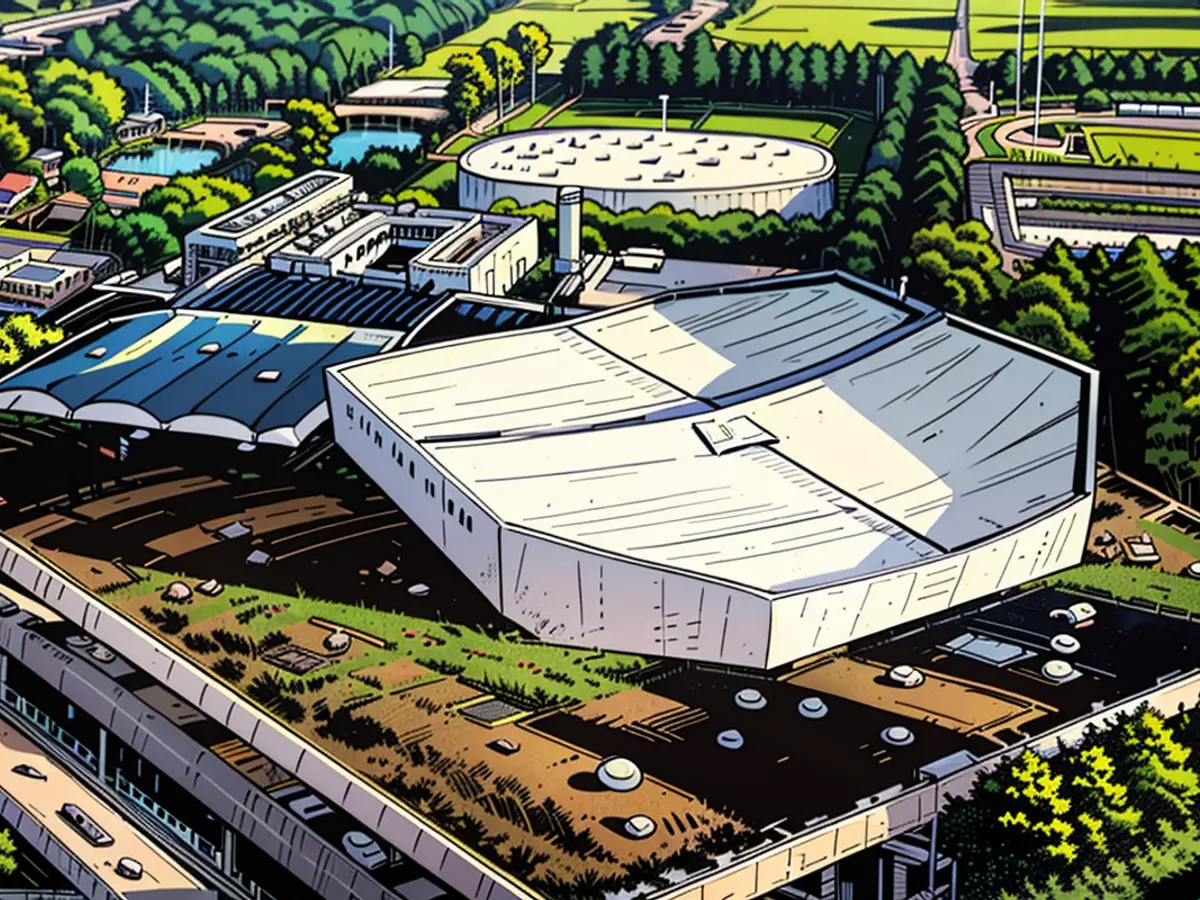- Upcoming Eurovision Song Contest 2025 in Basel: Already, the Master of Ceremonies is Grooving
Exciting News: Nestled on the German border, Basel has been selected as the venue for the Eurovision Song Contest (ESC) 2025. The city is already abuzz with anticipation, as evident in a video shared by President Conradin Cramer on the X platform, where he dances through the town hall, grooving to Switzerland's winning song from 2024, "The Code". He promises a city-wide celebration for residents and visitors alike, not just those with show tickets.
Basel, the third-largest city in Swiss territory, managed to outdo Geneva in the bid for the event. The decision was made by the European Broadcasting Union (EBU) and Switzerland's SRG media company. The semi-finals will take place on May 13 and 15, with the final on May 17.
Germany's southern region also looks forward to revenue
"I'm confident that the unique ESC vibe will extend to Lörrach," said its independent mayor, Jörg Lutz, in an interview with Deutsche Presse-Agentur. Tourists could explore Lörrach's offerings, hotels, and discover that the town "has much to offer," Lutz said. Mayor Diana Stöcker of Weil am Rhein was equally excited, proclaiming it a victory for the tri-border area.
Basel's business community is already rubbing its hands in expectancy. In Malmö this year, around 100,000 visitors flocked to the city for the ESC. Those with spare bedrooms stand to make a good profit. On booking platforms, hotel rooms are nearly fully booked. Even days after Basel's selection, a room in a mediocre, poorly-rated hotel was still available for about 1,000 euros per night. Along the Rhine, hotel ships and campsites are now being set up.
July poll showed mixed opinions
Social media was filled with Swiss enthusiastically celebrating the event with memes and emojis. However, national sentiment was not as positive just four weeks ago. A poll of over 24,000 people found that half were not enthused about Switzerland hosting the ESC. The largest political party, the SVP, is among the skeptics, with its president once referring to it as a "humiliating rainbow event".
The ESC's celebration of love in all its forms contributes to this. For instance, Nemo, a non-binary individual who identifies neither as male nor female, has made headlines since winning in Malmö, including calling for recognition of a third gender - a concern for the SVP and many of its supporters.
Seating for 12,000 spectators
The extravaganza will take place in Basel's St. Jakobshalle, with approximately 12,000 seats. A "Plus Arena" will be set up nearby in St. Jakob-Park for public viewing and concerts by former ESC stars. During the show, the "Plus Arena" will be integrated using live switches. An ESC Village will also be established on the exhibition grounds, hosting events and parties related to the ESC.
The city anticipates costs of around 30 to 35 million Swiss francs (37 million euros), but expects to recoup the expenses through fan spending and promoting the Basel region in the long term.
Overcoming barriers in Basel
The motto is: "Crossing Borders". Basel has been living this philosophy for decades: The city itself borders directly on Germany and France, and the municipalities in the tri-national area work so closely together that residents barely notice the borders. This motto also applies to the ESC, where political tensions have increasingly become apparent, such as in relation to the Russian war against Ukraine or the conflict between Israel and the terrorist organization Hamas in the Gaza Strip.
More than 35 public broadcasters from predominantly Europe participate in the music competition, which are members of the EBU. The winning country typically hosts the next ESC. This year, the German singer Isaak placed 12th in Malmö.
Switzerland has triumphed in the ESC more times than Germany
For Switzerland, this is the third ESC: They hosted the inaugural competition in 1956 in Lugano and also won with Lys Assia. The next host was, however, Frankfurt. A second time, the Canadian Céline Dion triumphed for Switzerland in 1988 and launched her international career. The following year, the competition took place in Lausanne. Germany has only emerged victorious twice: Nicole in 1982 with "Ein bisschen Frieden" and Lena Meyer-Landrut in 2010 with "Satellite".
The following is a list of potential product categories that could benefit from the influx of visitors during the Eurovision Song Contest in Basel: hotels, tour packages, local attractions, and merchandise related to the contest. Additionally, local businesses in Lörrach and Weil am Rhein, located in Germany's southern region, might also see an increase in revenue due to the event.







